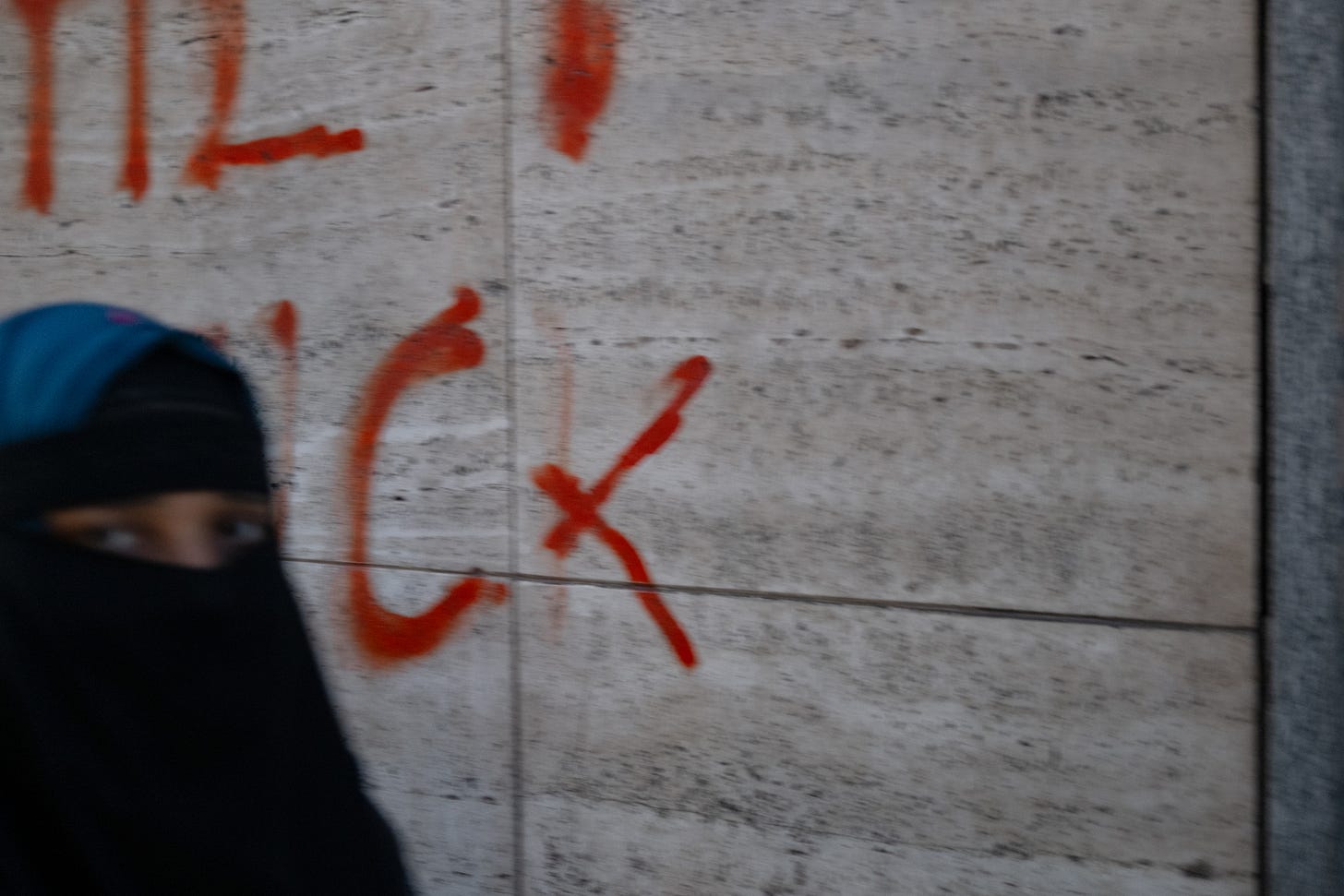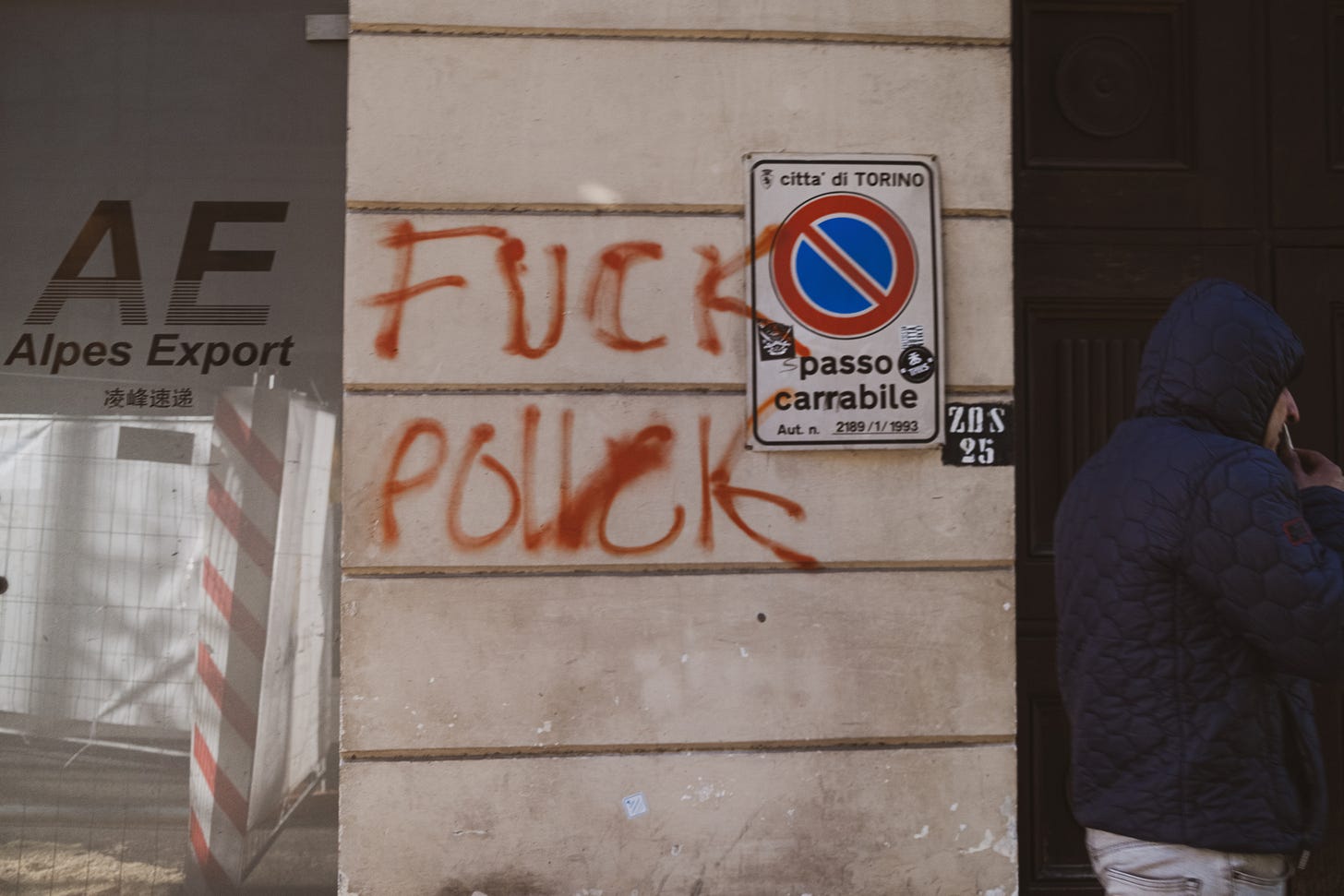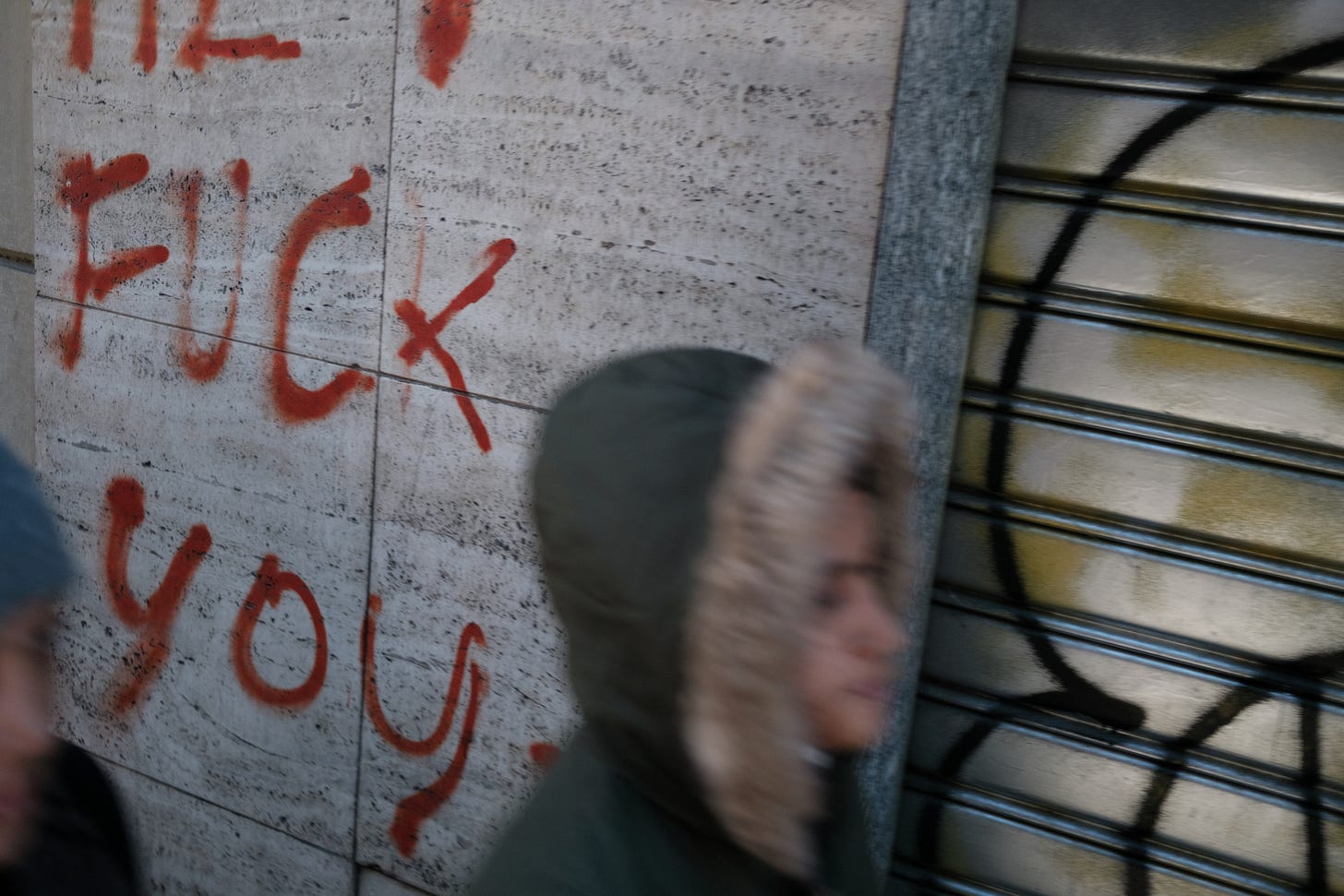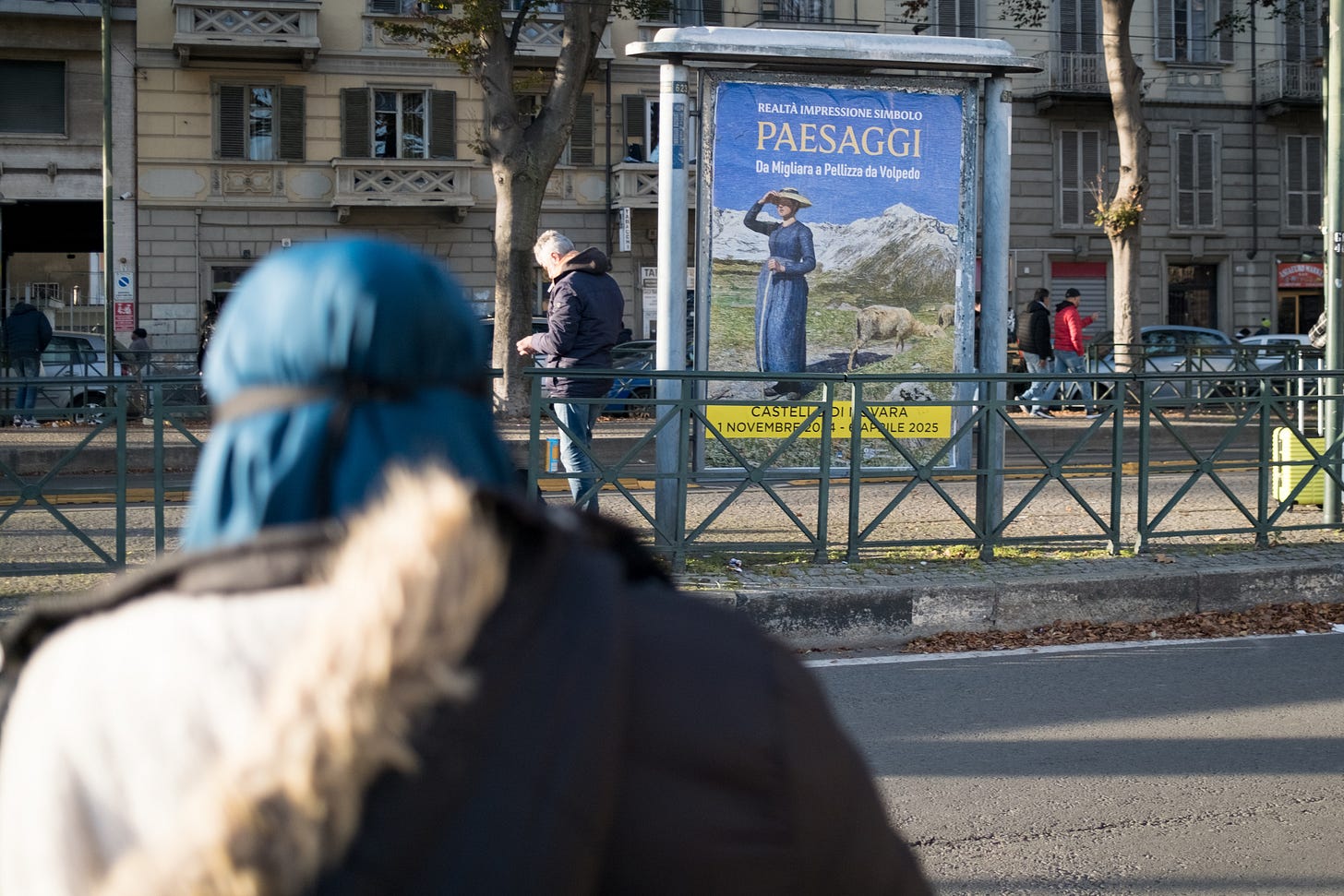By Joel Schalit
"Don't shoot! I'm a cop!" the man yelled in Italian as he blocked my shot of a demonstration.
There wasn't much he could have done to prevent it. The policeman stepped in front of my camera as I released the shutter button.
But I put my camera down, smiled and nodded.
It isn't often that plainclothes police identify themselves like that.
Luckily for the cop, I respect my subjects. I always stand down when someone asks me not to use a photo I've taken of them.
Though the law is on my side, there's nothing worse than someone looking you in the eye and making such a request. You have to accede.
Even though I resent police hovering over protests like these - it's intimidating to demonstrators - they are the law.
Protesters I was following had begun to taunt the growing numbers of antiriot police lining their route, ready to fight, and this cop’s anxiety reflected that.
A melee eventually broke out, and things got very violent. But I'd returned to the office beforehand and only learned about it from the news.
Covering another demonstration a week later, I found myself in a similar situation.
Chasing after students waving Palestinian flags down one of Torino’s main thoroughfares, I used my iPhone to take a panorama shot from left to right.
"Why did you take my photograph?" yelled out a twenty-something woman in English, wearing a hoodie.
Surprised by her choice of language, I responded that I was shooting everything in front of me, not her, specifically.
"Give me your phone so I can erase my photo," she yelled.
I gave her a sharp look and handed it to her.
"I can't seem to erase it," she exclaimed in frustration. "What did you do?"
By that point, she'd started to upset me, and all I could do was throw up my hands.
"I have no idea what you're doing wrong," I replied. "I never have such problems."
I started to wonder whether this person was a security officer. Italian, she was not.
Out of nowhere, a group of similarly dressed twenty-something guys in hoodies showed up and took my phone from her.
"He's not using Apple's standard camera app," one of them told her in perfect English and deleted the image themselves.
"Thanks," I replied as he handed me my phone back. He smiled and told me he appreciated my cooperation.
I recount these incidents with a selection of images that are not about protests to highlight how unusual these interventions are.
I usually take photos on the weekends when I am not tied to my desk. I make a point of photographing people doing things other than protesting.
I find that more enjoyable than going to demonstrations, and I prefer it aesthetically. The politics communicated are less didactic.
It’s only been since 7 October that, after nearly twenty years of taking pictures for work, I find myself covering more protests than not.
Assembling these images for the first Aperture Priorities column of 2025 reminded me how unusual it is to get harassed.
Even though there are times that I can irritate the people I capture, such experiences reinforce how gracious my subjects are about being photographed.
I want to think it’s more of a collaboration than not.
Please support The Battleground. Subscribe to our free newsletter and make a donation to ensure our continued growth and independence.
Photograph courtesy of Joel Schalit. All rights reserved












